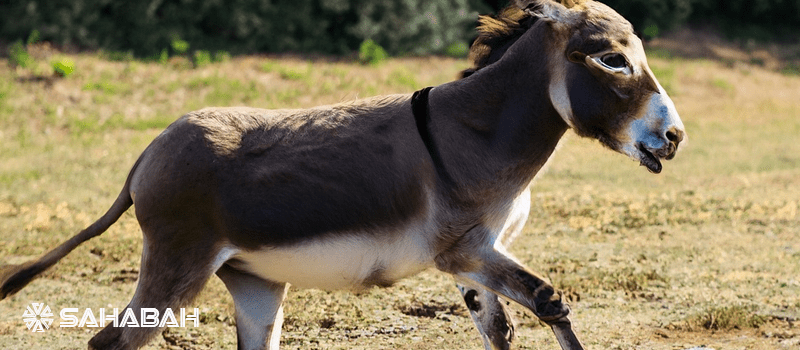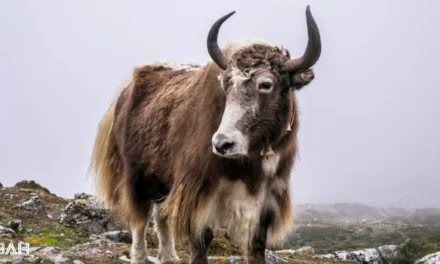The consumption of donkey meat is a controversial issue in Islamic jurisprudence. While most Islamic scholars consider donkey meat to be haram (forbidden), some argue that it may be halal (permitted) in certain circumstances. This ambiguity stems from the fact that donkeys are not explicitly prohibited in the Quran or hadiths (sayings of the Prophet Muhammad PBUH), yet the majority opinion considers donkeys to be impure.
Those who argue donkey meat is permissible state that donkeys are similar to horses, which are halal. However, the predominant view is that eating donkey meat is lowly and associated with desperation.
This article will analyze the evidence and perspectives on both sides of this debate in detail, highlighting the need for further scholarly discussion and consensus.
Arguments that Donkey Meat is Halal
Some Islamic scholars and interpretations argue that donkey meat is permissible to eat in certain contexts. The evidence includes:
-
Donkeys are similar in nature to horses, which are universally considered halal in Islam. Horses and donkeys both provide transportation and labor. Horses are halal because they are not wild beasts. By analogy, donkeys have a domesticated nature as well.
-
There are hadiths showing the Prophet Muhammad (PBUH) allowed donkeys to be slaughtered for food during times of necessity:
Narrated Jabir bin ‘Abdullah: On the day of Khaibar, Allah’s Apostle forbade the eating of donkey meat and allowed the eating of horse meat. (Sahih Bukhari)
-
Donkeys are not explicitly categorized as haram in the Quran or widely accepted hadiths. They are in a gray area, as this source explains. Silence on their prohibition could be interpreted as permissibility.
However, those arguing for prohibition have strong counterpoints, which will be covered next. There is still debate and need for authoritative consensus on this issue.
Arguments that Donkey Meat is Haram
Despite the evidence cited for permissibility, the majority opinion in Islam is that donkey meat is haram (forbidden) to eat. The arguments include:
-
Donkeys are commonly placed in the same category as dogs in Islamic tradition, which are deemed ritually impure.
Abdullah ibn Mughaffal reported Allah’s Messenger (صلى الله عليه وسلم) as saying: Were dogs not a species of creature I should command that they all be killed; but kill every pure black one. (Muslim)
-
Donkeys, like dogs, are used for transportation, labor, and other utilitarian purposes – not for meat. Eating them is seen as lowly and only permissible in desperate situations.
- Several major schools of Islamic jurisprudence prohibit donkey meat, including Hanafi, Maliki, and Hanbali. They base this on the hadith evidence.
-
Contemporary Islamic bodies like Darul Ifta prohibit donkey meat, considering the preponderance of evidence points to it being haram.
In conclusion, those arguing donkey meat is haram have strong textual evidence and legal precedent on their side. But differences in interpretation remain.
Is Donkey Halal – Frequently Asked Questions
Is donkey meat halal?
Yes, donkey meat is halal. This has been confirmed by Islamic scholars and is based on the teachings of the Prophet Muhammad and the Qur’an. There are hadiths from the Prophet (pbuh) that indicate donkey meat is permissible to be consumed.
What does halal or haram mean?
The term “halal” refers to anything that is permissible according to Islamic law. On the other hand, “haram” means something that is forbidden or prohibited according to Islamic teachings.
Did the Prophet (pbuh) forbid the meat of donkeys?
No, the Prophet Muhammad (pbuh) did not forbid the meat of donkeys. There is no specific prohibition mentioned in the hadiths or the Qur’an regarding the consumption of donkey meat.
Is it halal to eat the meat of horses?
Yes, it is permissible to eat the meat of horses according to Islamic teachings. The permissibility of eating horse meat is similar to the permissibility of eating donkey meat.
What about the meat of wild donkeys?
The meat of wild donkeys is also considered halal. As long as the animal is slaughtered according to Islamic guidelines and the meat is prepared in a halal manner, it can be consumed.
Can domesticated donkeys be consumed?
Yes, the meat of domesticated donkeys is halal. Islamic teachings do not differentiate between the meat of domesticated donkeys and wild donkeys when it comes to permissibility.
What is the reasoning behind the permissibility of donkey meat?
Islamic scholars explain that there is no explicit prohibition in the Qur’an or the hadiths regarding the consumption of donkey meat. Therefore, unless something is explicitly forbidden, it is considered halal.
Are there any specific incidents related to the consumption of donkey’s meat in Islamic history?
Yes, there is an incident known as the Battle of Khaibar where the Prophet Muhammad and his companions consumed the meat of a donkey. This incident supports the permissibility of donkey meat according to Islamic teachings.
Can you provide a hadith on the topic of donkey’s meat?
In Sahih al-Bukhari, it is narrated that the companion Abu Tha’labah al-Khushani said, “
Conclusion
The permissibility of eating donkey meat in Islam remains a complex debate with good arguments on both sides:
-
Those saying it is halal cite the lack of an explicit prohibition, donkeys’ similarity to horses, and hadiths showing donkeys slaughtered for necessity.
-
However, the majority opinion considers donkeys to be ritually impure and haram by analogy to dogs, based on more widely accepted hadiths.
This issue showcases differences in legal interpretation across schools of Islamic law:
-
The Hanafi and Maliki schools prohibit donkey meat.
-
The Shafi’i school considers it makruh (disliked) but not haram.
-
The Hanbali school seems more lenient on special circumstances.
More authoritative scholarly bodies should thoroughly examine the evidence and seek a consensus. In the meantime, Muslims should exercise caution and avoid donkey meat unless faced with dire need. As the Quran says:
Eat not of that on which Allah’s name has not been pronounced, for that is abomination. (6:121)





